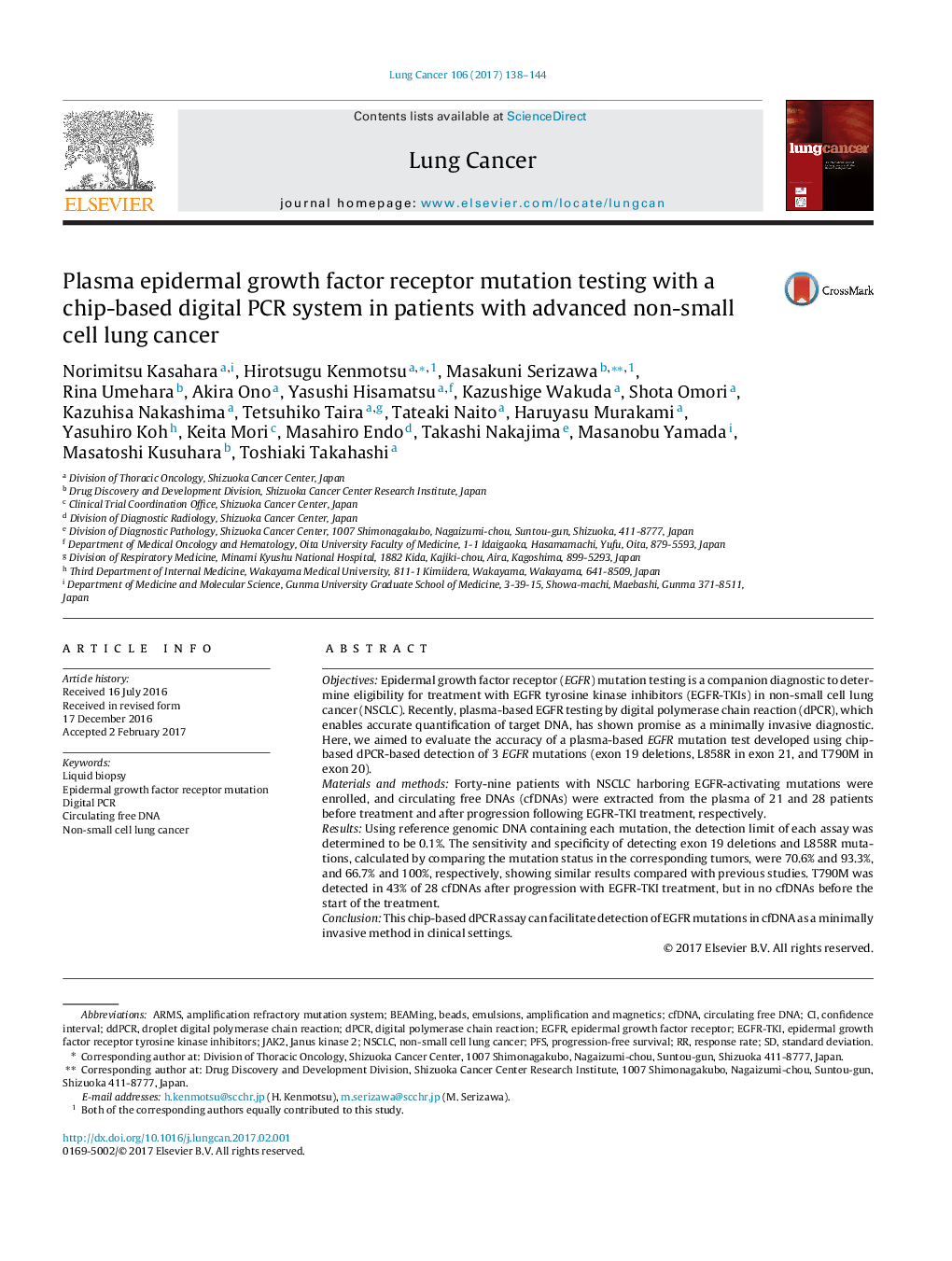| Article ID | Journal | Published Year | Pages | File Type |
|---|---|---|---|---|
| 5528156 | Lung Cancer | 2017 | 7 Pages |
â¢A novel plasma EGFR mutation test with chip-based digital PCR was assessed.â¢EGFR-activating mutation detection rates were similar to those in previous reports.â¢The EGFR T790M mutation was also detectable with the chip-based digital PCR assay.â¢Mutation detection tended to be more frequent in extra-thoracic metastatic disease.
ObjectivesEpidermal growth factor receptor (EGFR) mutation testing is a companion diagnostic to determine eligibility for treatment with EGFR tyrosine kinase inhibitors (EGFR-TKIs) in non-small cell lung cancer (NSCLC). Recently, plasma-based EGFR testing by digital polymerase chain reaction (dPCR), which enables accurate quantification of target DNA, has shown promise as a minimally invasive diagnostic. Here, we aimed to evaluate the accuracy of a plasma-based EGFR mutation test developed using chip-based dPCR-based detection of 3 EGFR mutations (exon 19 deletions, L858R in exon 21, and T790M in exon 20).Materials and methodsForty-nine patients with NSCLC harboring EGFR-activating mutations were enrolled, and circulating free DNAs (cfDNAs) were extracted from the plasma of 21 and 28 patients before treatment and after progression following EGFR-TKI treatment, respectively.ResultsUsing reference genomic DNA containing each mutation, the detection limit of each assay was determined to be 0.1%. The sensitivity and specificity of detecting exon 19 deletions and L858R mutations, calculated by comparing the mutation status in the corresponding tumors, were 70.6% and 93.3%, and 66.7% and 100%, respectively, showing similar results compared with previous studies. T790M was detected in 43% of 28 cfDNAs after progression with EGFR-TKI treatment, but in no cfDNAs before the start of the treatment.ConclusionThis chip-based dPCR assay can facilitate detection of EGFR mutations in cfDNA as a minimally invasive method in clinical settings.
